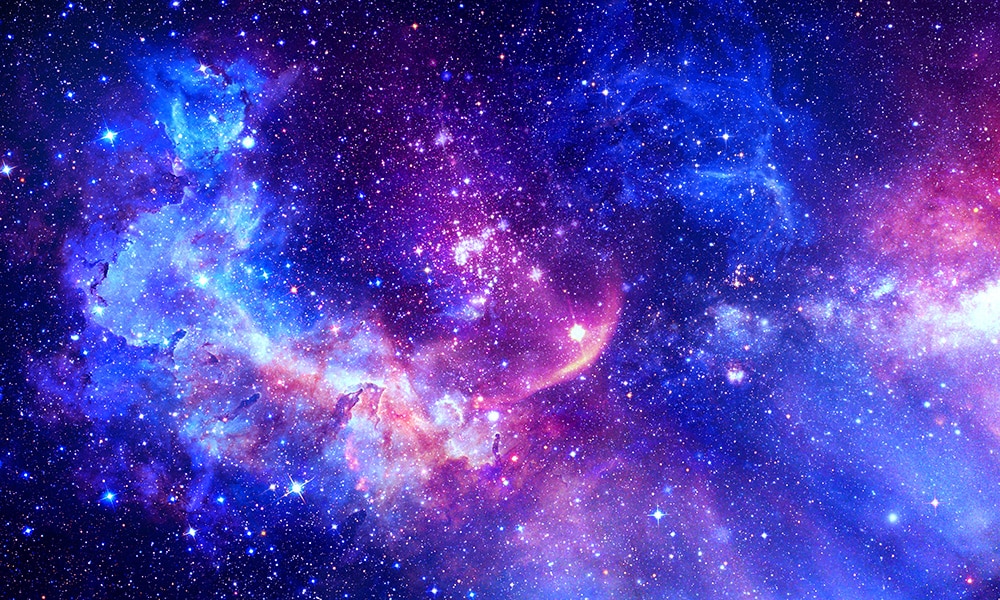 Question: I have a question of which I am not sure there is an answer. Why did God create the heavens, the Earth and mankind in a galaxy of so many stars (the Milky Way)? And our galaxy is also just one of billions of galaxies. All this was created by God, but why, and why so vast? He certainly wasn’t lonely.
Question: I have a question of which I am not sure there is an answer. Why did God create the heavens, the Earth and mankind in a galaxy of so many stars (the Milky Way)? And our galaxy is also just one of billions of galaxies. All this was created by God, but why, and why so vast? He certainly wasn’t lonely.
— Vic Bunton, Elkhorn, Wisconsin.
Answer: To be clear, we are in the realm of speculative theology. As you note, there is no official or perfect answer to your question. That said, one answer to the astonishing vastness of the universe and immense diversity of things is that it is an expression of God’s love. Not only is the universe vast, but it is also expanding at nearly 100 million miles an hour at its edges, and it is picking up speed as it does so. And all of this is expressive of God’s love, which is vast, expansive and ever-increasing in the heart of the faithful and in the things he has made. The existence of all this was not necessary for God. He was not lonely or bored. Rather, love overflows and seeks to share good things with others. God creates so as to manifest and share his glory with what he creates. He seeks further to share his truth and love with rational beings such as angels and humankind and thus establish a relationship with us.
A further observation is that, according to many cosmologists, our solar system in this precise part of the Milky Way Galaxy seems to be fine-tuned for the existence of higher life, such as our own. Some call this the “anthropic principle.” Earth may be far rarer than many have recently thought. This is because it isn’t just a few things that come together to make the Earth what it is; it is thousands of things in just the right order and combination. These include things like having a stable star of just the right size and distance in a part of a galaxy that has lower background radiation and cosmic debris. It also includes having the presence of water, having an orbit closer to a circle than an ellipse (to keep the temperature steadier), having a molten core that generates a magnetic field (to deflect the harmful rays of the sun) and having large gas-giants like Jupiter and Saturn that draw in comets and other space debris. The list could go on and on, but the statistical probability of these things coming together in just the right combination and balance is very small. Hence, the Earth as a vessel for higher life such as we know may be quite rare, even in a universe with billions of galaxies. Cosmically, we live a charmed existence. Theologically, God seems to have carefully crafted Earth with us in mind.
It is our belief that all created things owe their existence to God. The heavens declare the glory of God. They also declare his love, which is ever new, ever expansive and growing in the unbelievably vast cosmos. And yet, Earth seems to be a very special place.
Life beyond Earth
Question: Does Scripture have anything to say about UFOs, aliens or extraterrestrial existence? Doesn’t Genesis mention “other planets?”
— Kevin Fellman, Chatsworth, California
Answer: There is nothing specific in Scripture other than what some may try to read into. For example, the “Nephilim” in Genesis is described as a race of giants, and some propose they were an alien race that visited our planet. Some others contend that angels are just an extraterrestrial alien race. These interpretations and others like them are not conventional and dubious. The planets (a name that means “wandering body”) are not explicitly named in Scripture, but among the heavenly lights Venus and Saturn are mentioned.
All this said, while Scripture is silent about the things you mention, it also does not offer a direct denial of their existence. Hence, one is free to hold that entities, including intelligent life, may exist outside our planet and may in fact make visitations here. The answer to the question above in this week’s column does raise some doubts, however, if one accepts the views of rare Earth theory. The statistical probability of widespread intelligent life drops if rare Earth theory holds. However, even that does not preclude that there is some intelligent life existing in this vast universe. Neither the Church nor the Scriptures explicitly forbid such a stance.
Msgr. Charles Pope is the pastor of Holy Comforter-St. Cyprian in Washington, D.C., and writes for the Archdiocese of Washington, D.C. at blog.adw.org. Send questions to msgrpope@osv.com.







